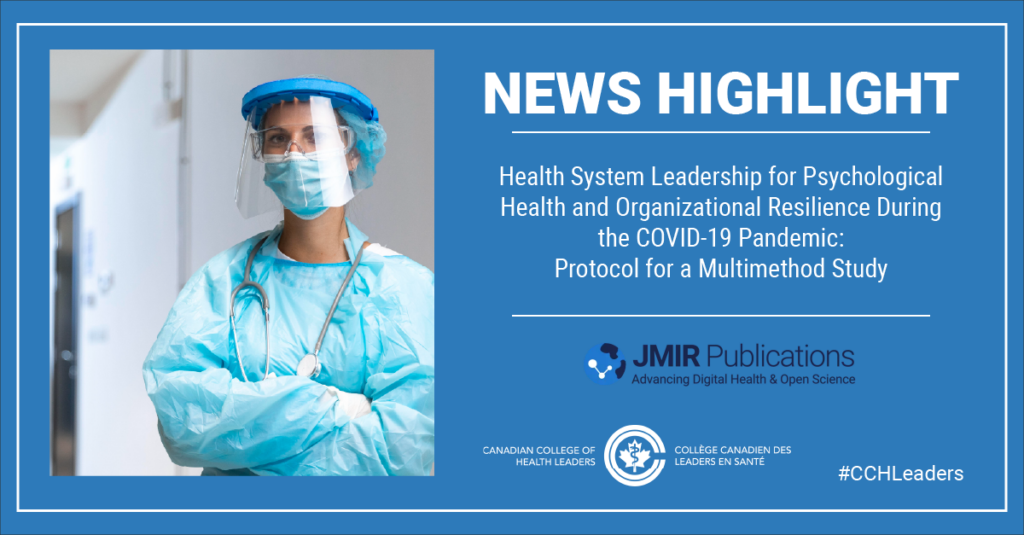Health systems around the world were overwhelmed by the COVID-19 pandemic, and many were unprepared to support the psychological health and well-being of their workforce. A newly published article in JMIR Research Protocols outlines a national study that addresses this challenge by focusing on how health system leaders responded during the pandemic and how they can better prepare for future crises.
The study, funded by the Canadian Institutes of Health Research (CIHR), is co-led by Dr. Sonia Udod (University of Manitoba), Dr. Pamela Baxter (McMaster University), and Dr. Jaason Geerts, Vice-President, Research and Leadership Development at the Canadian College of Health Leaders. It uses a novel crisis leadership framework developed by Dr. Geerts to guide data collection and analysis across four stages of crisis: escalation, emergency, recovery, and resolution. The study includes interviews with health system leaders and nurses across three provinces, exploring how leadership practices affected psychological health, burnout, and organizational resilience.
“Leadership is critical in a crisis and affects organizational performance and resilience,” said Dr. Jaason Geerts. “This study provides an opportunity to better understand how to support leaders and staff psychologically, while equipping health systems to respond more effectively to future emergencies.”
The project is expected to generate practical and transferable strategies to improve leadership training, crisis preparedness, and staff support in hospitals and other health care settings. End-of-study dissemination plans include a national forum and the creation of an evidence-informed e-handbook for leaders.
The article, “Health System Leadership for Psychological Health and Organizational Resilience During the COVID-19 Pandemic: Protocol for a Multimethod Study”, emphasizes the urgent need to invest in leadership strategies that prioritize well-being and resilience—both during times of crisis and beyond.
To read the full article, visit https://www.researchprotocols.org/2025/1/e66402/



